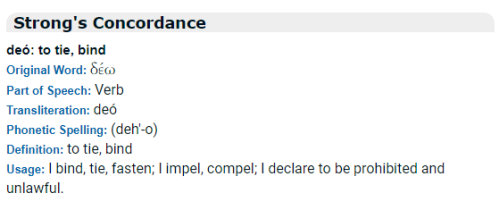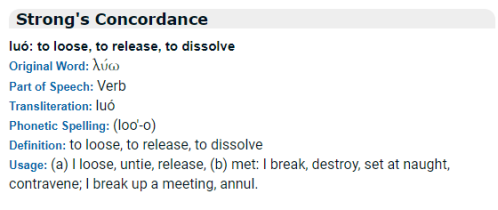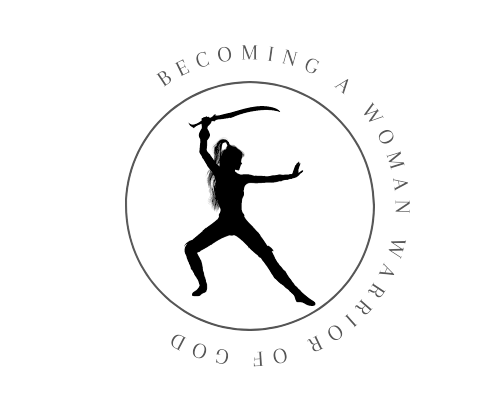19 I will give you the keys of the kingdom of heaven; whatever you bind on earth will be bound in heaven, and whatever you loose on earth will be loosed in heaven.” Matthew 16:19
The first thing I always look at is the definition of words because translations do affect how we look at a verse and some translations really miss the mark. I’ll give you an example:

What is the Greek words for bind and loose?


Even in the concordance it tells you that the use of this term in verses Matthew 16:19 and 18:18 are a Rabbinical idiom which means to forbid or prohibit. Logically loose should represent the opposite.


Bible commentator, Adam Clarke wrote:
It is as plain as the sun, by what occurs in numberless places dispersed throughout the Mishna, and from thence commonly used by the later rabbins [rabbis] when they treat of ritual subjects, that binding signified, and was commonly understood by the Jews at that time to be, a declaration that any thing was unlawful to be done; and loosing signified, on the contrary, a declaration that any thing may be lawfully done. Our Savior spoke to his disciples in a language which they understood….
The Exegetical Dictionary of the New Testament adds: “‘Bind’ and ‘loose’ are technical terms in Judaism…with respect to teaching, the phrase is used for authoritative exposition of the law by an authorized, ordained rabbi, who has authority ‘to forbid and to permit.’ ”
I remember one of the first books I read on binding and loosing taught that you were to bind the devil and loose the Holy Spirit. I have also read teachings that said the opposite that you loose the devil and bind the Holy Spirit to you. If you set aside the fact that this is an idiom both teachings are problematic because you can’t compel Satan or the Holy Spirit. And you definitely do not want to loose Satan and again you don’t have the authority to loose the Holy Spirit.
Before I give you some examples in the bible of binding and loosing, Josephus records in Jewish War 1:111 that the Pharisees “became the administrators of all public affairs, empowered to banish and readmit whom they pleased as well as to loose and bind.”
“Is it a fast that I have chosen, A day for a man to afflict his soul? Is it to bow down his head like a bulrush, And to spread out sackcloth and ashes? Would you call this a fast, And an acceptable day to the Lord? Is this not the fast that I have chosen: To loose the bonds of wickedness, To undo the heavy burdens, To let the oppressed go free, And that you break every yoke?” Isaiah 58:5-6
Declaring fast days, the rules on Sabbath and the washing of hands (Mk 7:3) are all ways the Pharisees would use the authority of binding and loosing. Unfortunately they sometimes went a little crazy with some of their binding and loosing which Jesus addressed.
You may have been taught that when you bind, you have to loose or vice versa but that’s inaccurate. The followers of Shammai would only bind and the school of Hillel would only loose. They saw it as a checks and balance system when it came to authority.
Another example of binding and loosing can be found in the gospel of John…
“If you forgive the sins of any, they are forgiven them; if you withhold forgiveness from any, it is withheld.” John 20:23
My favorite example of binding and loosing is found in Acts chapter 15. To set the background of the story Paul and Barnabas were leading many gentiles to the Lord and some of the Pharisees were demanding that these new believers be circumcised.
If you know Paul’s history, you know that his teacher Gamaliel was against circumcising converts and that he believed spiritual circumcision of the heart was more important. Paul likewise held to this view and that new believers shouldn’t have to go through the same process that a proselyte went through to become part of the nation of Israel (meaning grafted in). This matter is brought before the apostles and the elders that Christ established and this was their decision. Please note it is James not Peter who gives this judgment.
19 “It is my judgment, therefore, that we should not make it difficult for the Gentiles who are turning to God. 20 Instead we should write to them, telling them to abstain from food polluted by idols, from sexual immorality, from the meat of strangled animals and from blood. 21 For the law of Moses has been preached in every city from the earliest times and is read in the synagogues on every Sabbath.” Acts 15:19-21
To me this is very Holy Spirit inspired and it reminds me of something Jesus said pertaining to the bindings of some of the Pharisees…
4 They bind heavy, cumbersome loads and put them on other people’s shoulders, but they themselves are not willing to lift a finger to move them. Matthew 23:4
13 “Woe to you, teachers of the law and Pharisees, you hypocrites! You shut the door of the kingdom of heaven in people’s faces. You yourselves do not enter, nor will you let those enter who are trying to. Matthew 23:13
Shut the door is part of this idiom of binding and loosing. In the book of Isaiah it is prophesied that God will give Eliakim this authority:
22 I will place on his shoulder the key to the house of David; what he opens no one can shut, and what he shuts no one can open. Isaiah 22:22
In Acts 2:14-39 Peter uses the authority of binding and loosing by opening the door to all those who would repent and be baptized for the forgiveness of their sins, likewise those who reject the Messiah the door is now being shut.
CONTEXT CONTEXT CONTEXT
It is so very important for us to understand the context surrounding verses in our bible and the culture which includes the idioms and understanding of that time, without this knowledge we build teachings that lead us away from the truth of God’s word.
The answer to the question I posed above is this… it is not biblical to bind principalities and powers. We were giving the authority to cast demons out.. Cast not bind. Those are two very different words. This brings us to one last verse that needs addressed.
“Or again, how can anyone enter a strong man’s house and carry off his possessions unless he first ties up the strong man? Then he can plunder his house. Matthew 12:29
Contextually Jesus shows how illogical the Pharisees statement is by explaining, that if Satan were casting out Satan, his kingdom could not stand. He then goes on to say that it is by the Spirit of God that he drives out demons, which He can do because He is the stronger man.
Jesus uses a metaphor to illustrate His mission. No one can enter a man’s house and take his goods unless he has first conquered him. Jesus is saying, if I am not the Messiah, stronger than Satan, how could I spoil him? We see clearly that Christ does take his goods.
The Gospel of Luke words it better… notice that it does not use the word bind.
1 “When a strong man, fully armed, guards his own house, his possessions are safe. 22 But when someone stronger attacks and overpowers him, he takes away the armor in which the man trusted and divides up his plunder. Luke 11:21-22
I want to close with a few other commentaries because these are the notes that our Christian forefathers, die hard scholars shared on this topic.
John Wesley’s Explanatory Notes on the Whole Bible
Mat 16:19 – I will give thee the keys of the kingdom of heaven – Indeed not to him alone, (for they were equally given to all the apostles at the same time, Joh_20:21-23;) but to him were first given the keys both of doctrine and discipline. He first, after our Lord’s resurrection, exercised the apostleship, Act_1:15. And he first by preaching opened the kingdom of heaven, both to the Jews, Act_2:14 &c., and to the Gentiles, Act_10:34 &c. Under the term of binding and loosing are contained all those acts of discipline which Peter and his brethren performed as apostles: and undoubtedly what they thus performed on earth, God confirmed in heaven. Mat_18:18.
Albert Barnes’ Notes on the Bible:
Mat 16:19 And I will give unto thee… A key is an instrument for opening a door. He that is in possession of it has the power of access, and has a general care of a house. Hence, in the Bible, a key is used as a symbol of superintendence an emblem of power and authority. See the Isa_22:22 note; Rev_1:18; Rev_3:7 notes. The kingdom of heaven here means, doubtless, the church on earth. See the notes at Mat_3:2. When the Savior says, therefore, he will give to Peter the keys of the kingdom of heaven, he means that he will make him the instrument of opening the door of faith to the world the first to preach the gospel to both Jews and Gentiles. This was done, Acts 2:14-36; 10. The “power of the keys” was given, on this occasion, to Peter alone, solely for this reason; the power of “binding and loosing” on earth was given to the other apostles with him. See Mat_18:18. The only pre-eminence, then, that Peter had was the honor of first opening the doors of the gospel to the world.
Whatsoever thou shalt bind… – The phrase “to bind” and “to loose” was often used by the Jews. It meant to prohibit and to permit. To bind a thing was to forbid it; to loose it, to allow it to be done. Thus, they said about gathering wood on the Sabbath day, “The school of Shammei binds it” – i.e., forbids it; “the school of Hillel looses it” – i.e., allows it. When Jesus gave this power to the apostles, he meant that whatsoever they forbade in the church should have divine authority; whatever they permitted, or commanded, should also have divine authority – that is, should be bound or loosed in heaven, or meet the approbation of God. They were to be guided infallibly in the organization of the church:
1. By the teaching of Christ, and,
2. By the teaching of the Holy Spirit.
This does not refer to persons, but to things – “whatsoever,” not whosoever. It refers to rites and ceremonies in the church. Such of the Jewish customs as they should forbid were to be forbidden, and such as they thought proper to permit were to be allowed. Such rites as they should appoint in the church were to have the force of divine authority. Accordingly, they commanded the Gentile converts to “abstain from pollutions of idols, and from fornication, and from things strangled, and from blood” Act_15:20; and, in general, they organized the church, and directed what was to be observed and what was to be avoided. The rules laid down by them in the Acts of the Apostles and in the Epistles, in connection with the teachings of the Savior as recorded in the evangelists, constitute the only law binding on Christians in regard to the order of the church, and the rites and ceremonies to be observed in it.
The People’s New Testament (1891) by B. W. Johnson
Mat 16:19 – I will give unto thee the keys of the kingdom of the heaven. That is, of the church. The office of the keys is to open the doors, or close them. On Pentecost, Peter first opened the doors and declared the conditions of which men could have their sins forgiven, be bound or loosed, and thus enter into the church. Seven years later at Cæsarea he declared the same conditions to the Gentiles. While Peter took the lead the keys were given to all the apostles, and to no other mortal. See Mat_18:18, and Joh_20:19-28. All that is here said to Peter is said to all the apostles.
Robert Jamieson, A. R. Fausset and David Brown Commentary
Mat 16:19 – And I will give unto thee the keys of the kingdom of heaven – the kingdom of God about to be set up on earth and whatsoever thou shalt bind on earth shall be bound in heaven: and whatsoever thou shalt loose on earth shall be loosed in heaven – Whatever this mean, it was soon expressly extended to all the apostles (Mat_18:18); so that the claim of supreme authority in the Church, made for Peter by the Church of Rome, and then arrogated to themselves by the popes as the legitimate successors of St. Peter, is baseless and impudent. As first in confessing Christ, Peter got this commission before the rest; and with these “keys,” on the day of Pentecost, he first “opened the door of faith” to the Jews, and then, in the person of Cornelius, he was honored to do the same to the Gentiles. Hence, in the lists of the apostles, Peter is always first named. See on Mat_18:18. One thing is clear, that not in all the New Testament is there the vestige of any authority either claimed or exercised by Peter, or conceded to him, above the rest of the apostles–a thing conclusive against the Romish claims in behalf of that apostle.
UPDATE– I just recently came across this article on binding and loosing (Hebrew perspective) and been reading several things on this website. So far it’s been really good and I wanted to share this.


Remember what it says in Jude about the discussion between Michael and Satan. “May the Lord rebuke you.”He was quoting another passage. Zechariah 3:2 And the LORD said unto Satan, The LORD rebuke thee, O Satan; even the LORD that hath chosen Jerusalem rebuke thee: [is] not this a brand plucked out of the fire? Jude 1:9 Yet Michael the archangel, when contending with the devil he disputed about the body of Moses, durst not bring against him a railing accusation, but said, The Lord rebuke thee.
It is interesting that “The Lord said, The Lord rebuke thee.” Yet David confronted Goliath by saying. … 1 Samuel 17:45-46 Then said David to the Philistine, Thou comest to me with a sword, and with a spear, and with a shield: but I come to thee in the name of the LORD of hosts, the God of the armies of Israel, whom thou hast defied. This day will the LORD deliver thee into mine hand; and I will smite thee, and take thine head from thee; and I will give the carcases of the host of the Philistines this day unto the fowls of the air, and to the wild beasts of the earth; that all the earth may know that there is a God in Israel.
David claimed to be acting for God.
Can we do the same? Sometimes, we can. But Moses was presumptuous and didn’t get to go into the promised land.
Esther had half the palace pray!
Jesus quoted Deuteronomy!
My answer – be careful, and pray first. Look for a specific Biblical example. Then act in faith.
Romans 8:28 Prevails. Daniel’s 3 friends said .. “Our God can … but nonetheless, we won’t.”
LikeLike
Thank you for your reply, the verses you posted were awesome. Very good answer
LikeLike
The above comment is from Jim Campbell, who uses a pen name Don Clifford, author of Nineveh Rising, coming out March 31 on Amazon Kindle. I just put in a friend request which led me here! Good question. Don Clifford
LikeLike